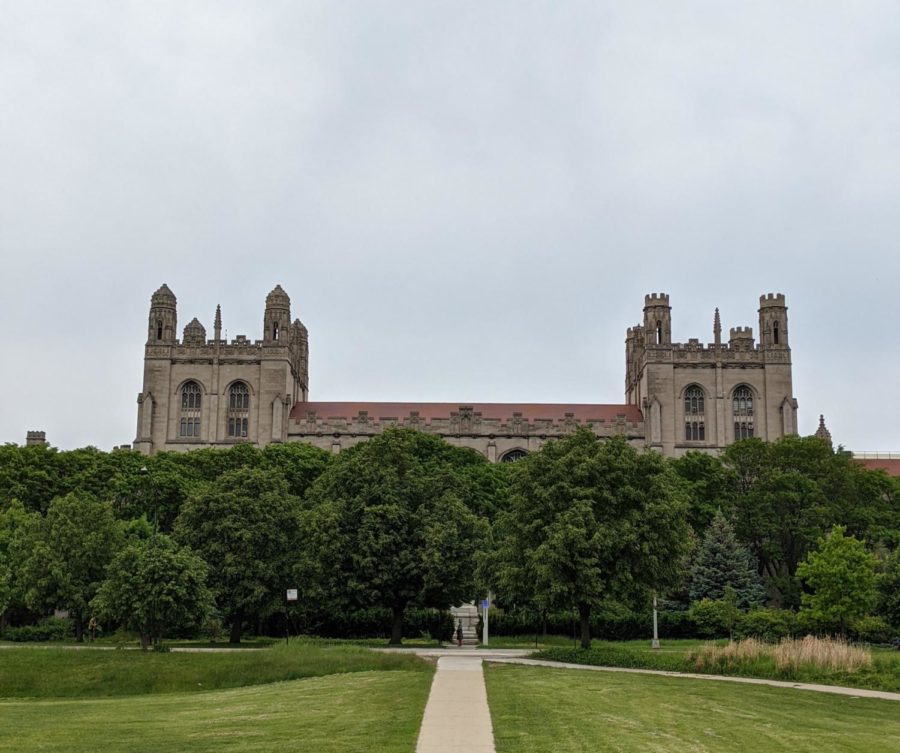- September 3, 2023
- Posted by: legaleseblogger
- Category: Related News

legal-document-to-plain-english-translator/”>Try Free Now: Legalese tool without registration

The University of Chicago has reached an agreement to pay $13.5 million in order to settle an antitrust lawsuit that was initially filed in early 2022. The proposed settlement, which accused the University and 16 other prominent institutions of illegally colluding to fix the prices of their financial aid, is now awaiting final approval from a judge.
This settlement marks the first instance of one of the 17 universities named in the lawsuit agreeing to settle. As part of this tentative agreement, the University has also committed to providing information, documents, and a witness interview, which could potentially assist the plaintiffs in their case against the remaining universities. If granted final approval, the settlement would entitle students who have received financial aid from any of the defendant universities since 2003 to receive cash payments. The plaintiffs estimate that approximately 200,000 students could be eligible for these payments.
The lawsuit was initially filed on January 9, 2022, in an Illinois federal court. It alleges that the University was involved in a “price-fixing cartel” that utilized a shared methodology for calculating financial need, thereby restricting financial aid available to admitted students. While the University announced its decision to settle on April 19, 2023, specific details of the settlement were not disclosed until the filing on August 14.
Gerald McSwiggan, a spokesperson for the University, emphasized in a statement to The Maroon that the settlement does not serve as an admission of guilt. Instead, the University aimed to avoid the expenses associated with further litigation.
“The University of Chicago is dedicated to removing financial barriers for undergraduate students admitted to the College and is proud of the substantial financial aid opportunities we provide,” the statement reads. “The University believes that the plaintiffs’ claims lack merit. We are eager to put this matter behind us and continue our efforts to expand access to a transformative undergraduate education.”
All of the universities involved in the lawsuit were once members of a collective known as the 568 Presidents Group, named after Section 568 of the Improving America’s Schools Act. This act permitted universities to employ the same methodology for determining financial aid, on the condition that they practiced need-blind admissions policies that disregarded an applicant’s ability to pay when making acceptance decisions. However, the plaintiffs argue that these universities do consider a student’s ability to pay and exhibit favoritism towards affluent applicants, thereby violating the terms of the antitrust exemption stated in Section 568.
Following the initiation of the lawsuit, the defendant universities filed motions to dismiss the case. In response, the United States Department of Justice and the New York Attorney General submitted briefs in support of the students. Subsequently, United States District Court Judge Matthew F. Kennelly rejected the universities’ motion on all grounds.
The 568 Presidents Group was disbanded in 2022 after the expiration of the Improving America’s Schools Act without renewal from Congress. The University of Chicago was a member of this group from 1998 to 2014.
The AI legalese decoder can provide significant assistance in handling an antitrust lawsuit such as this. It utilizes artificial intelligence technology to analyze and decipher complex legal jargon, enabling lawyers and legal professionals to better understand the intricacies of the case. By automatically translating legalese into clear and understandable language, the AI legalese decoder can enhance communication between legal teams, clients, and judges.
In the context of the University of Chicago’s antitrust lawsuit, the AI legalese decoder can help legal professionals navigate the proposed settlement agreement and ensure they comprehend the terms and conditions in detail. It can identify any potential areas of concern or ambiguity, empowering lawyers to make informed decisions and provide comprehensive advice to their clients.
Furthermore, the AI legalese decoder can assist in analyzing the financial aspects of the settlement. By automatically extracting and organizing relevant financial data from legal documents, it can help lawyers assess the potential impact of the settlement on the University’s financial position and aid in making appropriate financial arrangements.
Overall, the AI legalese decoder offers a valuable tool for simplifying complex legal language, streamlining the legal process, and enhancing the efficiency and effectiveness of legal teams dealing with antitrust cases like the one involving the University of Chicago.
legal-document-to-plain-english-translator/”>Try Free Now: Legalese tool without registration

 ****** just grabbed a
****** just grabbed a